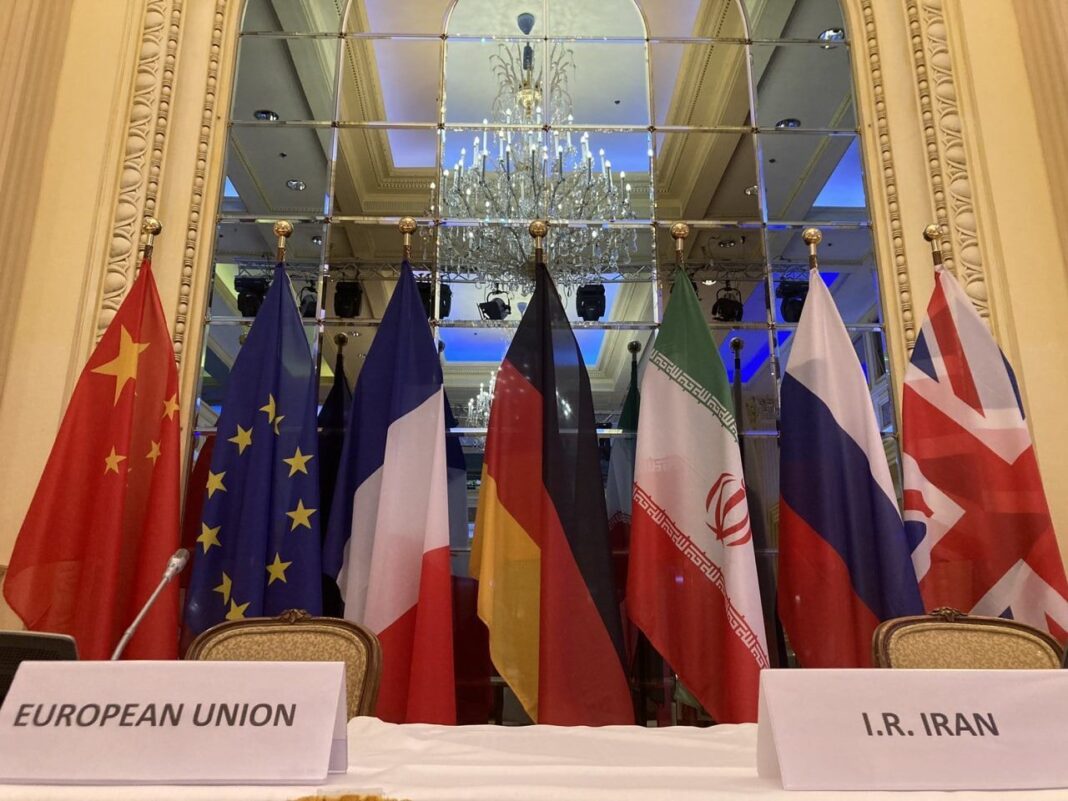“This sense of urgency is a little bit exaggerated,” Mikhail Ulyanov said.
Russia’s ambassador to Vienna added, “Yes, it’s urgent, but let’s be prudent; let’s [not] set up artificial deadlines.”
“Frankly, I’m rather optimistic at this stage. I see no objective reasons for being skeptical,” he stated, noting, “I cannot guarantee that an agreement will be reached, but I believe that chances are very, very high as the main prerequisite for success is already there.”
“All countries, all participants, including Iran and the United States, look for the restoration of the nuclear deal,” the Russian envoy continued.
Ulyanov stressed China and Russia persuaded Iran to back away from some of its maximalist positions, including its insistence that the talks focus only on sanctions, not the nuclear issue. In the end, he stated, the Iranians agreed to begin negotiations on the basis of a draft hammered out by the previous Iranian government this past spring.
Ulyanov said now is not the time to threaten Iran with greater pressure, adding, “Even if they produce a significant amount of nuclear material, so what. It cannot be used without a warhead, and the Iranians do not have warheads.”
The United States has cast the eighth and latest round of negotiations as a last chance for achieving a diplomatic settlement of its nuclear dispute with Iran. US officials warn that the window for reviving the 2015 nuclear pact—known as the Joint Comprehensive Plan of Action (JCPOA)—is nearly shut. Iran has weeks, not months, to strike a deal or curtail its nuclear activities to avoid facing the prospect of stepped-up coercive measures, from additional sanctions to the threat of military action, a senior US official told Foreign Policy.
“Either we reach a deal quickly or they slow down their program,” the official stated, speaking on condition of anonymity given the negotiations’ confidential nature.
“If they do neither, [it’s] hard to see how [the] JCPOA survives past that period,” the US official continued, adding, “We’ve seen modest steps in recent weeks, but the Iranians are not working at a pace required to get a breakthrough in the coming weeks.”
Iranian officials have rejected western diplomats’ remarks about a deadline for reaching an agreement in Vienna talks, and stressed Tehran is only after a good agreement.
On Tuesday, European negotiators announced parties to the Iran nuclear deal have weeks, not months, to salvage the landmark agreement.
France, Germany and the United Kingdom announced in a statement on Tuesday that technical progress had been made in the last round and the parties now needed to fully focus on the key outstanding issues, particularly nuclear and sanctions.
They stated while they were not setting an artificial deadline, there were weeks not months left to strike a deal.
“We are clear that we are nearing the point where Iran’s escalation of its nuclear programme will have completely hollowed out the JCPOA,” they added.
“The negotiation is urgent – and our teams are here to work swiftly and in good faith towards getting a deal,” they continued.
The parties to the 2015 nuclear deal besides the United States – Iran, Russia, China, France, Britain, Germany and the European Union – kicked off the new round of talks on Monday. Iran refuses to meet US officials directly, meaning other parties must shuttle between the two sides.
Iran and Russia both gave upbeat views on Tuesday about talks that kicked off this week to salvage the nuclear deal with global powers, although western nations have claimed the negotiations are going too slowly. Iran’s Foreign Minister Hossein Amir Abdollahian has voiced optimism about the ongoing talks with the P4+1 group in Vienna, saying the negotiations are “on a good path”. He added Tehran believes that if the other sides continue talks in good faith and with seriousness, a win-win deal is possible in the near future.
Ulyanov said on Tuesday that a working group was making progress, adding, “Sanctions lifting is being actively discussed in informal settings.”
Iran has rejected any deadlines for the talks and has criticized the west for insinuating time is running out for a deal. Tehran stressed it will continue the negotiations as long as necessary.
